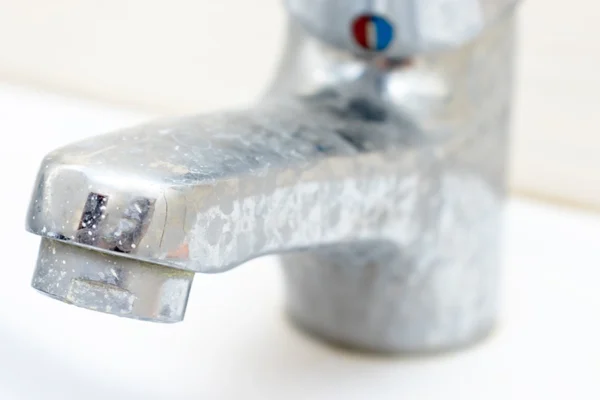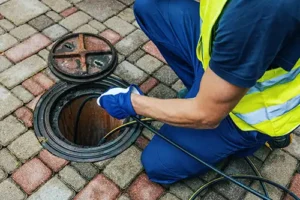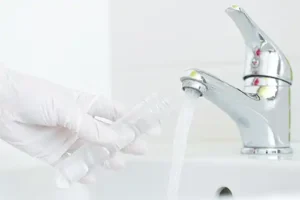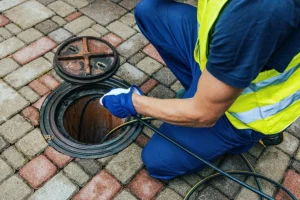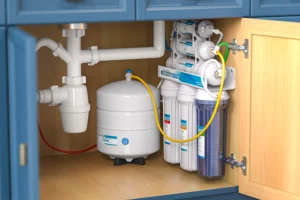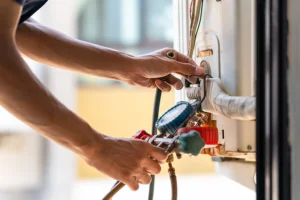At Polar, we understand the crucial role water plays in our daily routines, from hydration and cooking to cleaning and more. Yet, the quality of water varies greatly, categorized as either hard or soft based on its mineral composition. Recognizing the disparities between hard and soft water is crucial for optimizing the functionality of our plumbing systems in O’Fallon, IL, and maintaining the pristine condition of our clothes, dishes, and overall health. In this comprehensive blog post, we’ll explore the defining characteristics of hard and soft water, their impacts on our daily lives, and effective strategies for managing them to ensure a seamless and hygienic water experience.
What is Hard Water
Hard water contains high levels of dissolved minerals, mainly calcium and magnesium. These minerals come from the ground and seep into the water as it passes through soil and rocks. The mineral content in hard water varies by region due to different geological makeups, meaning some areas have water with more minerals than others. When you use hard water, it can leave behind mineral deposits called limescale on plumbing fixtures and appliances. This buildup can cause clogs and reduce water flow. Knowing the geological factors behind hard water helps us manage its effects better, improving water quality and extending the life of our plumbing systems and household appliances.
Signs of Hard Water
Hard water is known for leaving mineral deposits, or limescale, on plumbing fixtures, faucets, and appliances, which can cause clogs and reduce water flow over time. It also creates soap scum when mixed with soap, making surfaces like bathtubs, showers, and sinks difficult to clean and leaving a dull film behind. Hard water’s reduced lathering with soap means you’ll need more cleaning products to achieve the same level of cleanliness. Additionally, its high mineral content can strip natural oils from your skin and hair, leading to dryness, irritation, and worsening conditions such as eczema and dandruff. It can even affect laundry, making clothes feel stiff and less vibrant, with mineral deposits causing dinginess and discoloration over time.
What is Soft Water
Soft water has low levels of dissolved minerals, especially calcium and magnesium, unlike hard water. This low mineral content can naturally occur in some regions where the ground doesn’t add many minerals to the water. Alternatively, soft water can be made using water-softening systems. These systems remove calcium and magnesium from hard water through a process called ion exchange. In this process, hard water passes through resin beads coated with sodium or potassium ions, which swap places with the hard minerals. The result is water that doesn’t cause limescale buildup and other problems linked to hard water. Soft water cleans better and is gentler on skin and hair, making it a preferred choice for homes and businesses.
Signs of Soft Water
Soft water offers several benefits compared to hard water. First, it doesn’t leave behind mineral deposits or limescale, so plumbing fixtures, faucets, and appliances stay clean and free from buildup. This helps maintain their efficiency and prolongs their lifespan. Additionally, soft water lathers easily with soap and detergent, making cleaning more effective and reducing the amount of cleaning products needed. It’s also gentler on skin and hair, as it doesn’t strip away natural oils, helping to prevent dryness and irritation and improving overall health and appearance. When it comes to laundry, clothes washed in soft water feel softer and fresher, retain their color and vibrancy longer, and suffer less fabric damage, which extends the lifespan of clothes and linens.
Reach Out to Polar for a Water Softener Installation
Understanding the difference between hard water and soft water is essential for maintaining the efficiency of our plumbing systems, preserving the quality of our clothes and dishes, and promoting our overall health and well-being. Hard water, which contains high levels of minerals like calcium and magnesium, can lead to limescale buildup, affecting appliances and fixtures. Soft water, with low mineral content, prevents such issues and is gentler on skin and hair. Whether you live in an area with hard water or soft water, various solutions are available to manage water quality effectively. At Polar, we offer water softener installations and filtration system installations to improve your water quality. To learn more about our services, give us a call at 618.772.7007.

